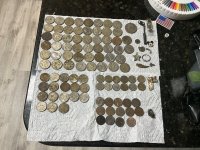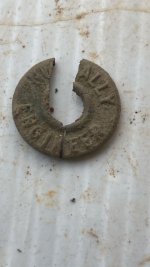silverdollarbill
Hero Member
- Aug 27, 2012
- 898
- 907
- Detector(s) used
- Tesoro Outlaw
- Primary Interest:
- All Treasure Hunting
Normally, I would agree, but I do not have enough money to buy any real estate. If the market crashes, it will be time to buy...
Real estate investing dramatically varies depending on what part of the country you are in. I think buying in NYC or SF right now would be crazy.





